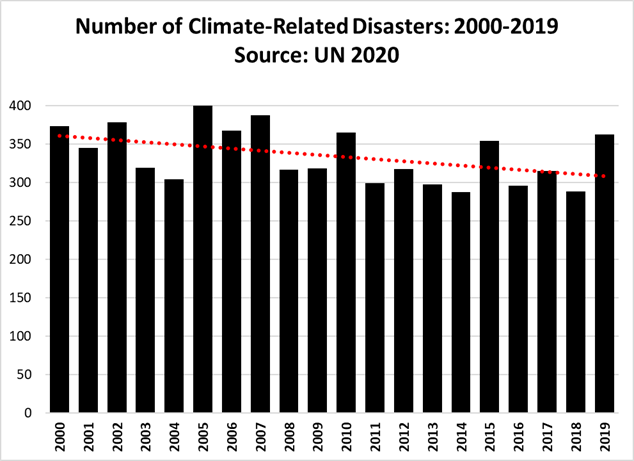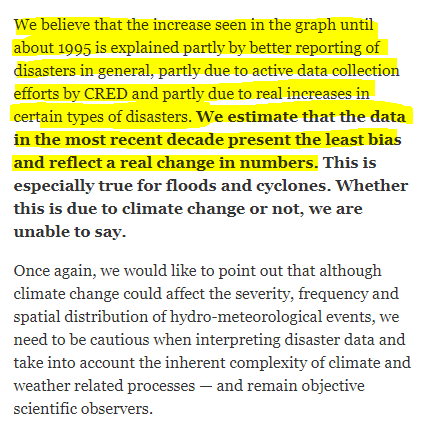
It will be interesting to watch the up-is-down reporting on the new UN report on disasters
The graph below is from data in the report (Figure 5, p. 10)
It shows that "climate-related" disasters have declined by ~15% over the past 20 years (2000-2019)
The graph below is from data in the report (Figure 5, p. 10)
It shows that "climate-related" disasters have declined by ~15% over the past 20 years (2000-2019)
https://twitter.com/HeadUNDRR/status/1314827378900824064

Back in 2007, in its annual report CRED/EM-DAT warned about using pre-2000 data to say anything about climate change, because of the massive increasing in reporting of disasters around the world. 

Fortunately (for those who care about data, science and accuracy) there is a large peer-reviewed literature on this topic
tandfonline.com/doi/full/10.10…
tandfonline.com/doi/full/10.10…
And a good reminder from EM-DAT researcher that you shouldn't use impacts data to say anything about climate trends (always use climate data directly!) 

• • •
Missing some Tweet in this thread? You can try to
force a refresh










